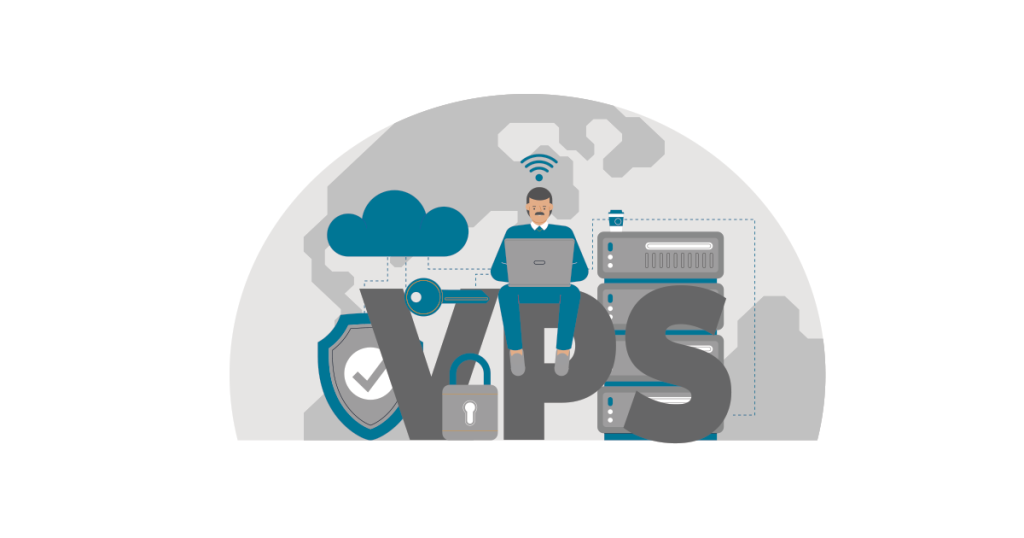When considering Virtual Private Server (VPS) hosting in Pakistan, security is an important aspect to address. Web hosting market is expected to grow at a Compound Annual Growth Rate (CAGR) of 15.5%, and VPS hosting is expected to be a leading segment. Every second, new cyber threats emerge, targeting vulnerabilities in servers, websites and online data infrastructures. It is a serious risk to customer trust, data privacy and operational continuity. Cyberattacks occur every 39 seconds, and more than half of small businesses have faced a security breach. That’s why securing your Virtual Private Server (VPS) has never been more crucial. VPS security involves setting up protective layers around your server, making it harder for attackers to infiltrate or cause harm. From preventing unauthorized access to defending against malicious attacks, ensuring your VPS is secure is a proactive way to keep sensitive information safe, maintain website availability and boost customer trust. This article researched by WebsCare team explores key security considerations for VPS hosting in Pakistan including encryption, firewall protection, software updates and intrusion detection, to help users secure their hosting environments.
How can internet speed in Pakistan improve or hinder web hosting and user experience? Learn about the effects of internet speed on hosting services and user interaction in Pakistan.
Key Security Considerations
Here are some key security considerations:

Data Encryption
Ensure that all data transmitted between your server and users is encrypted using SSL/TLS certificates. This helps protect sensitive information from being intercepted during transmission. Secure Sockets Layer (SSL) and Transport Layer Security (TLS) encrypt the communication between your server and clients. For example, when someone enters login credentials or makes payments, SSL/TLS prevents eavesdropping by encrypting data. Look for “https://” in the browser address bar, which indicates SSL/TLS protection. Data stored on your VPS, such as databases and files, should be encrypted. This ensures that even if a hacker gains access to your server, the data will be unreadable without the encryption key.
Firewall Protection
A firewall is a security system that monitors and controls incoming and outgoing network traffic based on predefined rules. For VPS hosting, firewalls act as the first line of defense against unauthorized access, malicious traffic and cyberattacks.
| Software Firewalls | Tools like iptables (Linux) or Uncomplicated Firewall (UFW) allow you to define rules that block or permit traffic. For example, you can block specific ports commonly used in attacks (e.g., port 23 for Telnet) while allowing legitimate traffic on port 443 for HTTPS. |
| Hardware Firewalls | Offered by hosting providers, these are separate appliances that filter malicious traffic before it reaches your VPS, adding an extra layer of protection. |
Firewall Protection
Ensure that your server’s operating system and all installed software (web servers, databases, etc.) are regularly updated with security patches. Outdated software often has known vulnerabilities. Software often has bugs or vulnerabilities that hackers can exploit to gain unauthorized access, execute malicious code, or compromise data. Many hosting environments support automated updates for critical software to reduce the risk of missed patches. For example, a vulnerability like “Shellshock” in older Linux versions was widely exploited until patched.
Are you interested in starting your own hosting business in Pakistan? Learn how to begin your journey with reseller hosting and build a successful business in Pakistan.
DDoS Protection
A Distributed Denial of Service (DDoS) attack occurs when a large volume of traffic floods a server, website or network. This overloads its capacity and makes it unavailable to legitimate users. DDoS attacks are often carried out using a botnet, a network of compromised computers or devices under the control of the attacker. Work with a hosting provider that offers DDoS protection or consider using a content delivery network (CDN) like Cloudflare for added protection.
Access Controls
Access Controls refer to the security measures and policies that restrict access to computer systems, networks, applications or data based on who users are and what level of access they need to perform their tasks. Access controls help ensure that only authorized users or systems can interact with specific resources, minimizing the risk of unauthorized access, data breaches and malicious activities. Use SSH keys instead of passwords for secure login to the server. SSH keys are harder to compromise than passwords. Enable Two-Factor Authentication (2FA) for any services that support it (e.g., control panel access, cPanel, etc.). Restrict SSH access to trusted IP addresses only and disable root login via SSH.
Backup and Disaster Recovery
If your server is hacked, data can be corrupted or stolen. Regular backups are essential and allow you to restore your server to a previous safe state. Schedule daily, weekly or monthly automated backups. Ensure that backups are stored securely, either on another server or in cloud storage, to prevent data loss from hardware failure or attacks.
Intrusion Detection and Prevention
Many modern security systems integrate both IDS and IPS known as Intrusion Detection and Prevention Systems (IDP) which provide both detection and prevention in one solution. This combination offers the benefits of both real-time alerts and automated blocking of threats.
Intrusion Detection Systems
Tools like AIDE (Advanced Intrusion Detection Environment) can monitor your server for unauthorized changes to files or configurations.
Intrusion Prevention Systems
Fail2Ban monitors login attempts and blocks IPs after repeated failed attempts, reducing brute force attacks.
Physical Security
Ensure that your VPS provider offers secure, reliable data centers with proper physical security measures such as surveillance, restricted access and disaster recovery plans. Some VPS providers in Pakistan offer data centers with localized security measures which can be beneficial. Familiarize yourself with local cybersecurity regulations in Pakistan such as the Personal Data Protection Bill or the Cyber Crime Law. Ensure that your hosting practices comply with these laws to avoid legal issues. Choose a reputable VPS provider with a strong security track record and a commitment to security best practices. Review their service level agreement (SLA) to understand the provider’s responsibilities in securing the infrastructure.
Ready to scale your website in Pakistan with managed hosting? Learn the steps to optimize your website’s performance and growth with managed hosting services.
Conclusion
In this research article, our WebsCare research team has outlined key security considerations for VPS hosting in Pakistan. Implementing measures such as data encryption, firewall protection, regular software updates and DDoS defenses significantly strengthens your server’s resilience against cyber threats. Additional strategies like access controls, regular backups and intrusion detection further enhance your security posture. It is also important to choose a VPS provider with a strong reputation for security and ensure compliance with local cybersecurity laws and regulations.


